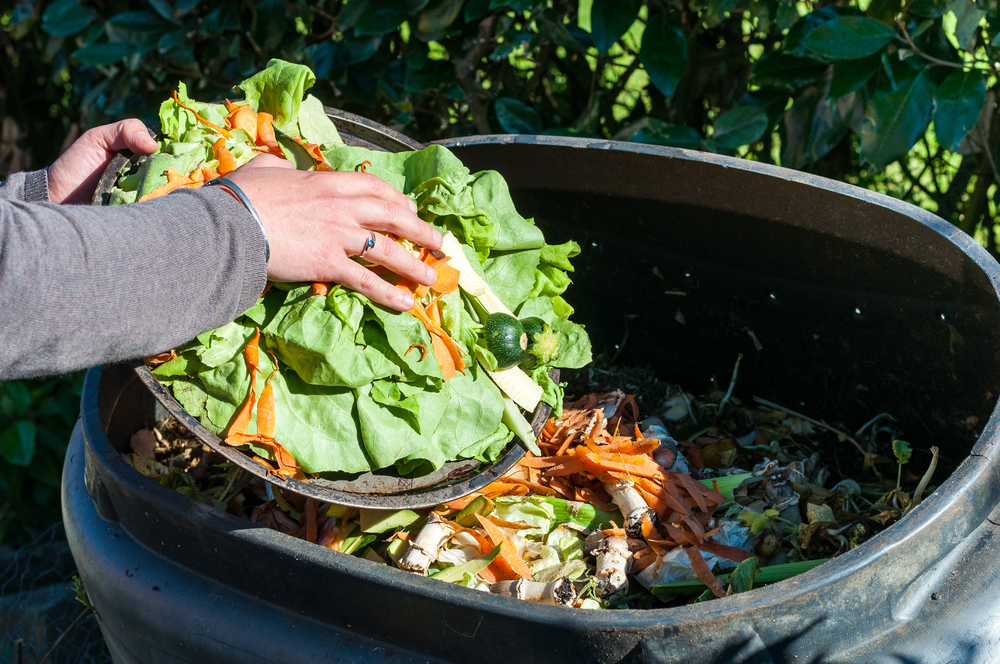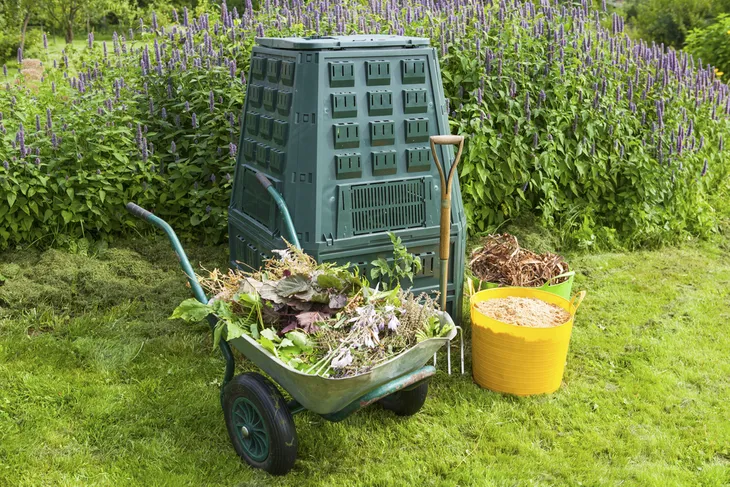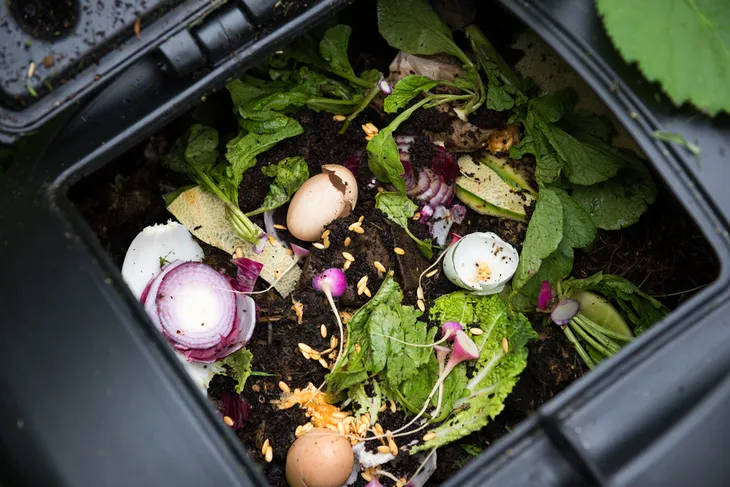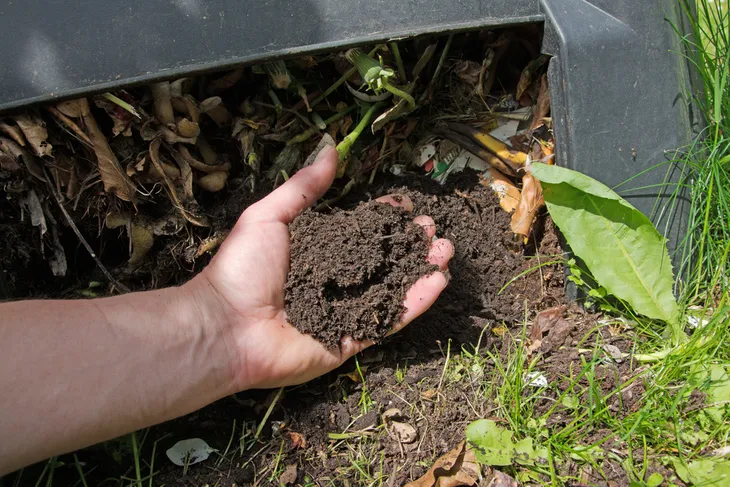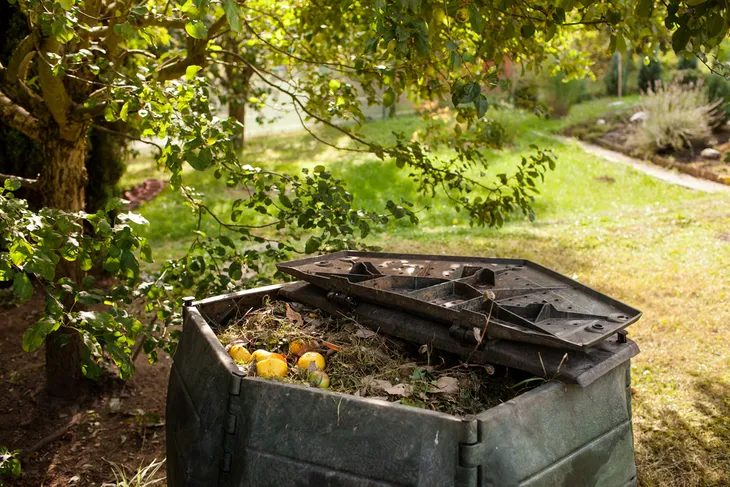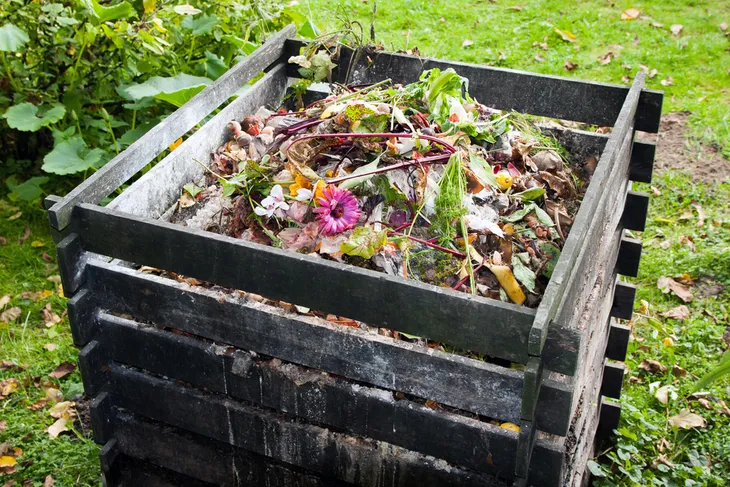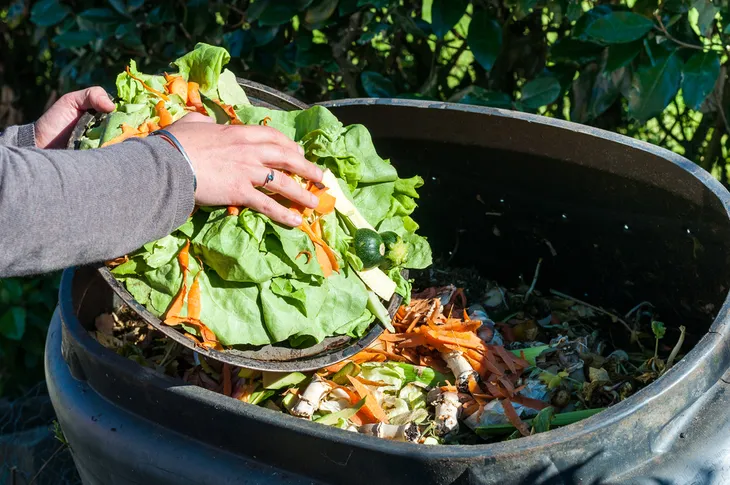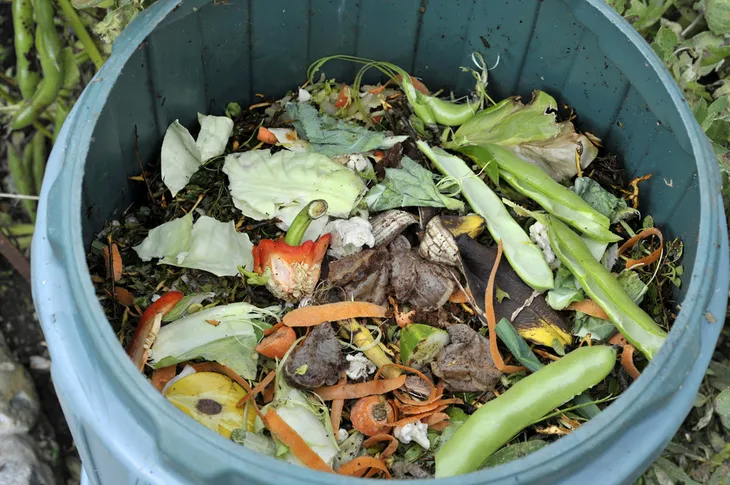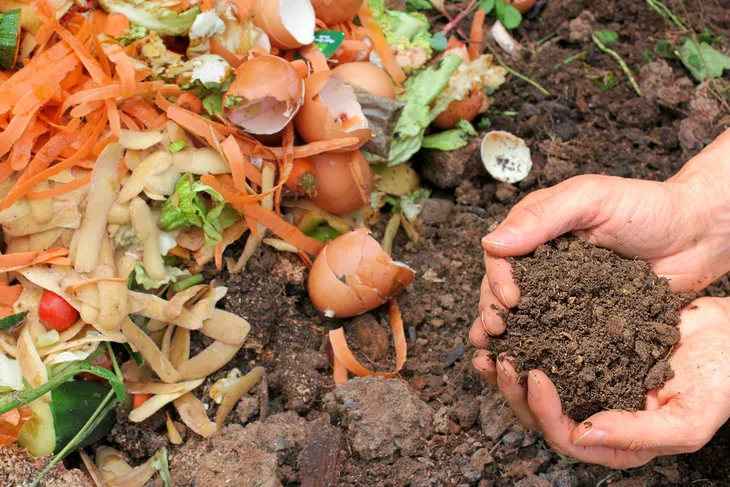If you support the idea of cutting waste and reducing trash in our landfills , composting can help you put nutrients back into your own garden.
Compost may seem intimidating, but it’s actually quite easy. You can make nutrient-rich, plant-enriching soil by combining decomposable waste materials from your own household. To start your own compost, follow these 8 easy steps…
Gather Brown Biodegradables
The “brown” material in your compost will form the basis and should be made up of carbon-producing twigs, sawdust, dead leaves, wood chips, branches, shredded paper (i.e., newsprint and cardboard), coffee filters, shredded wool and cotton, and even nut shells.
Collect Greens for Biodegradation
The “green” material in your compost bin will encourage nitrogen production—thanks to the breakdown of things like fruit peels and cores, veggie scraps, tea and coffee grounds, grass and leave clippings, and even hair and lint from your dryer. Keep items like pet waste, fatty meats, eggs (shells are fine), dairy products, and oils out of your compost materials.
Add Water
Adding water regularly will encourage the breakdown of green and brown organic contents in your compost bin. This is why setting up close to a water source (i.e., garden hose or outdoor tap) is important.
Set Up in Shade
Choose a shady spot in your backyard to set up your compost shop. The ideal dimensions should be roughly 3-feet deep, 3-feet wide, and 3-feet high. Keep water in mind so set up near a water hose or outdoor filling station.
Required Building Materials
You can purchase a plastic compost bin from your local hardware store or you can easily build one using leftover wood and chicken wire to shelter your compostable heap.
Layer Decomposable Contents
The ratio of your compostable materials is vital. Aim for as much shredded as possible (especially for cardboard and paper contents) and layer in 3 parts brown materials to 1 part green materials and so on then add your water.
Mix it Up
Turning or mixing your compost contents will encourage the breakdown of organic materials, reduce smell, and promote aeration. You will know that the organic matter is breaking down when you start to see steam coming from the compost heap.
Utilizing Organic Matter
When your compost is ready to use, it will be free of any trace food waste and dark, rich brown in color. This completely broken down organic matter can be infused into lawns, product garden soil, and plant soil to add nutrients and encourage organic growth.
